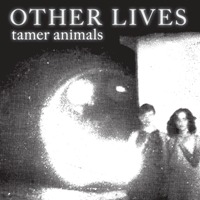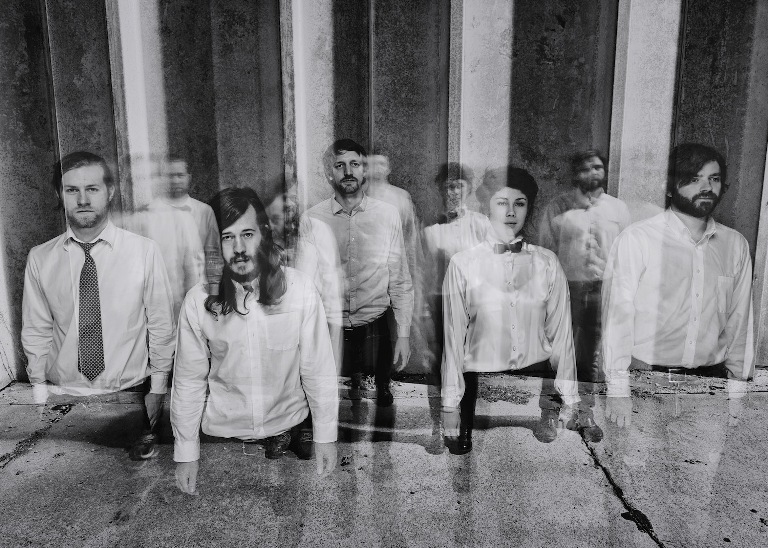 Other Lives: Tamer Animals (TBD, 5/10/11)
Other Lives: Tamer Animals (TBD, 5/10/11)
Other Lives: “For 12”
[audio:https://alarm-magazine.com/wp-content/uploads/2011/05/Other_Lives_For_12.mp3|titles=Other Lives: “For 12”]Within the relaxed confines of Stillwater, Oklahoma, indie/chamber quintet Other Lives worked tirelessly for 14 months to craft and perfect its sophomore album. The finished product, Tamer Animals, is a delicate blend that balances orchestrated compositions with indie-folk arrangements. Interpretive vocals carry each track to the next, and minor-key melodies provide a peaceful backdrop throughout. Below, frontman Jesse Tabish elaborates on crafting Tamer Animals, its underlying theme of human relationships with nature, and his classical influences.
You used a more personal/private approach in producing Tamer Animals. How did this process alter the making of the album and, more importantly, the outcome?
The time constraint is the biggest thing that comes to my mind. Laying down a guitar track or vocal or whatever it may be in the studio, you have a limited amount of time to get it right. At home, we really tailored everything to the exact sound that we wanted, and if we didn’t know a sound, we had the luxury to search for it. So we spent a lot of time searching out not only new tones and sounds, but we also needed the time to find new approaches to songwriting. So it was a combination of those two that I felt we needed to take it in this direction. The fact that we worked on it until we were happy with it…I can relax. And I had my hands in all aspects of it, so I very much enjoyed it.
Can you expound on the specifics of recording the album?
The initial idea for a lot of these songs came really quickly to me, sometimes in a day or a matter of hours, and I would do my own demo of it. Then the actual, proper recording came about, which took loads of time. It was a real process for every song; it was literally piece by piece, track by track. It was a lot of building, rather than a band going into a room and hashing out a tune. So it was building from the ground up.
Unlike the rest of the tracks, “Dark Horse” is devoid of guitar and bass, and it barely features piano. Why open the record this way?
I felt like [“Dark Horse”] was the first song where we were able to really get away from those core instruments, and in some way, it’s my ideal song off the record because it is free from the path. It was one of the earlier songs, and it was the first song that we did. After that, we realized that we could do the record on our own.
How does Tamer Animals reflect your physical surroundings during the writing and recording process?
I think what we wanted was kind of an observational perspective, rather than having a personal narrative. I wanted my voice, in particular, to be an outside source, rather than a storytelling kind of narrative. So our Oklahoma landscape definitely plays a part in that. There are some themes about the Dust Bowl that we use in our imagery to get closer to that idea. It’s something personal to us, but I didn’t want to get personal in a way that is unique to myself.
You worked with producer and composer Joey Waronker on your debut, and he mixed and co-produced Tamer Animals. What are some benefits to this relationship? Will you continue to work with him in the future?
He came in during the latter half of Tamer Animals, and it was a lot more than just bass up or down or just levels. He really took individual sounds and made them unique in his own right, which added a whole new color to the record. So he’s fantastic, and I definitely want to work with him again. He really put the finishing touches on [Tamer Animals], which, if we hadn’t used him, could have possibly come off a little duller sounding.
Philip Glass and Igor Stravinsky are very different composers, yet you take inspiration from both. What about each would you say influences you?
I feel like they, especially for their time, went to extreme measures in their music. When they first came out, they were heavily criticized for breaking new ground. But I think they’re real pioneers in their own fields: minimalism for Glass and late romanticism with Stravinsky. They really set their own path. They’re very different composers, so obviously it would be hard to compare their music, but they’re both kind of punk rockers of their day.
How do you think that the changes you’ve experienced recently are going to translate in a live setting during your summer tour?
We changed up a couple tunes, but most of it is pretty close to the record. We try to reproduce everything as closely as possible. It’s been four months of really intense rehearsals. We’ve played a handful of shows, and they seem to go well. I feel positive about it, but there’s definitely room for improvement. Obviously, we’re really busy on stage, trying to pull off all that is going on in the record, so it’s definitely a handful. But at this point, it’s starting to get where we are actually having fun, so that’s kind of a good sign.

